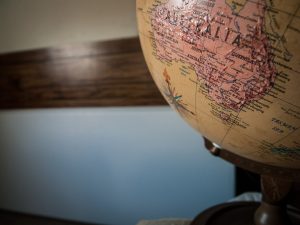Unlike most wealthy countries, Australia’s economy lacks both diversification and sophistication. Australia’s primary exports are in low complexity categories such as mining and agriculture. Despite being the world’s 13th largest economy, according to the Observatory of Economic Complexity, Australia ranks 74th in complexity, surprisingly far lower than many countries that do not share its wealth.
Economic complexity is important because it not only allows countries to produce unique, sophisticated and high-value products – with diverse export destinations – but it also guards against major economic shifts that could dramatically affect a country’s reliance on a small number of industries. While technology is rapidly shifting, complex economies tend to be either at the forefront of these technological shifts, or have the knowledge to pivot themselves in response.
Yet Australia is sleepwalking toward an economic shift that is about to decimate its second and third largest exports – coal and gas. Both these commodities have foreseeable expiry dates due to their carbon intensive nature, as well as losing cost-effectiveness in competition with renewables. Russia’s invasion of Ukraine will accelerate this shift as countries move to find energy sources that are not only less polluting but provide strategic independence.
Alongside this, Australia’s largest export – iron ore – is heavily reliant on Chinese demand, which presents a further geopolitical problem. While China has placed trade barriers on a number of Australian products due to tensions between the two countries, it has yet to do so to iron ore because it cannot find a substitute high-volume and efficient supplier. But if Beijing could find such a supplier, it most likely would sharply cut back on imports from Australia. It’s a sword that dangles above Australia’s head.
Education — international students — is the only major Australian export industry that is knowledge-intensive. Yet it is also not particularly unique, having many other major competitors. The COVID-19 pandemic has also hit the education industry hard, locking many students out of Australia, while poor treatment of those in the country during the pandemic has damaged the country’s reputation as an education destination.
Due to Australia’s geography it is always going to be a country that digs stuff up and ships it overseas. Replacing mining — coal and gas aside — is not realistic, but diversifying the country’s economy to be able to produce other things is essential. The two aren’t mutually exclusive.
Australia has made a half-hearted acknowledgement of the problem with the creation of the Business Innovation and Investment visa. Yet the visa has seen the government place its faith in the prospect of a visionary entrepreneur turning up with a load of cash and a single transformative idea. The problem for Australia is far more structural.
Australia continues to look at migration through the wrong lens, namely a strictly financial one. A recent report by the Grattan Institute highlighted this thinking by recommending increasing the salary threshold for the Temporary Skilled Worker program from $40,000 to $52,000 — these are people who initially fill skills shortages, but often transition to become permanent migrants. Yet this would only reinforce Australia’s current economic structure as these migrants serve the current market demand — which is necessary, but not the real problem.
The value of a migrant shouldn’t be the money they spend or the taxes they pay, but a much broader understanding of what they can contribute. What Australia currently lacks is not money, it’s ideas. The generation of new ideas doesn’t come with an immediate recognizable dollar figure. What the market values is what the market currently knows, but what Australia needs are the things that its economy doesn’t know about yet.
The types of people Australia needs are not those who can necessarily earn high wages within Australia’s current economic structure. The country needs people who can collectively alter the country’s economic structure. I’ve written previously that Australia’s Working Holiday Maker visa is a potential source of skills and perspectives that the country fails to adequately capture. This group is younger than skilled migrants, so don’t yet have the responsibilities that require stable and high wages. They have the freedom to pursue creative endeavors.
Of course, Australia’s lack of economic complexity is a larger problem than simply importing new people. It also requires new education policies that focus on building the skills and perspectives Australia lacks, new cultural policies that can foster sophisticated thinking, a serious attempt to tackle the massive social negative of unaffordable housing that inhibits people’s action, and a willingness for the state to invest in things it may not know the end outcome of.
Australia’s wealth hides a serious failure of national strategy. The wealth generated from its abundance of resources should have led to an investment in the industries and skills that Australia doesn’t currently have. South Korea’s transformation from a poor, agricultural-based economy to a high-tech powerhouse demonstrates that altering a country’s economic structure can be done, and done without the platform Australia currently has. But South Korea had the one thing that Australia has yet to demonstrate that it has – a serious vision of its future.

































